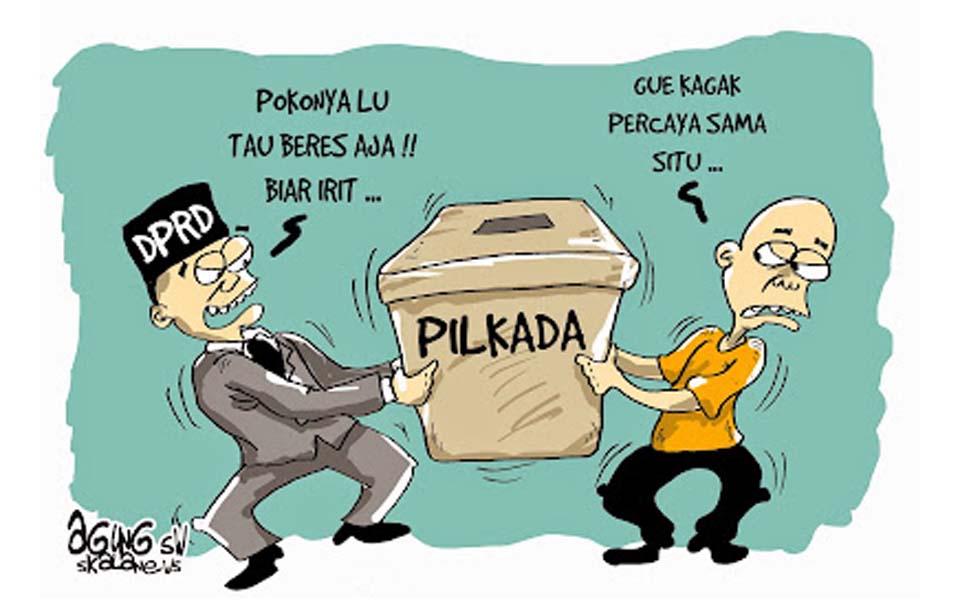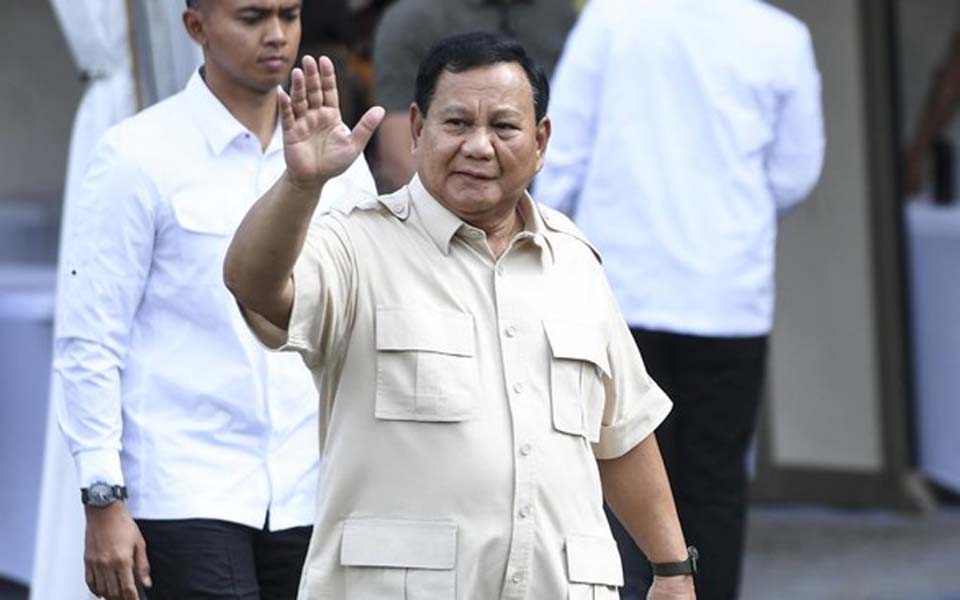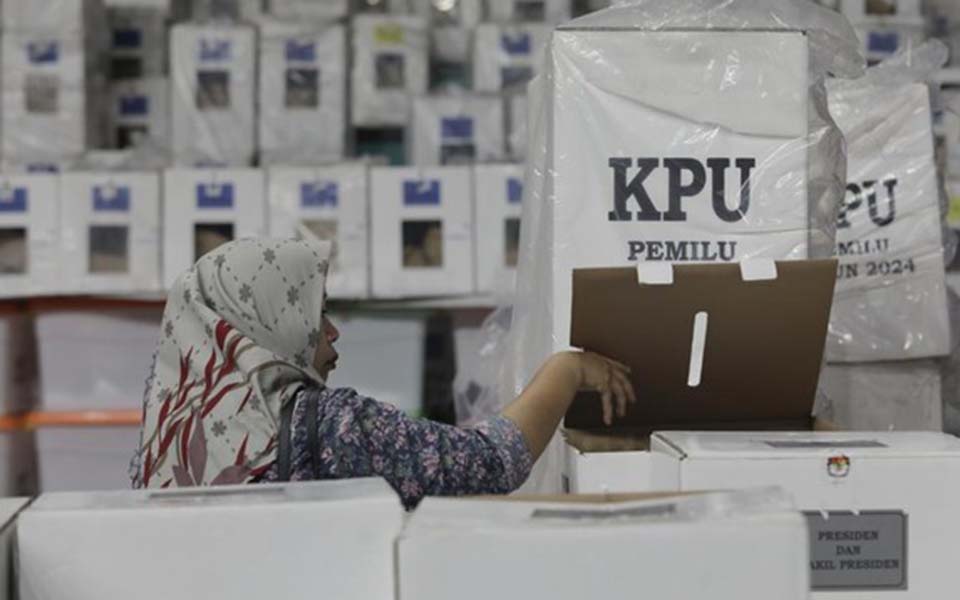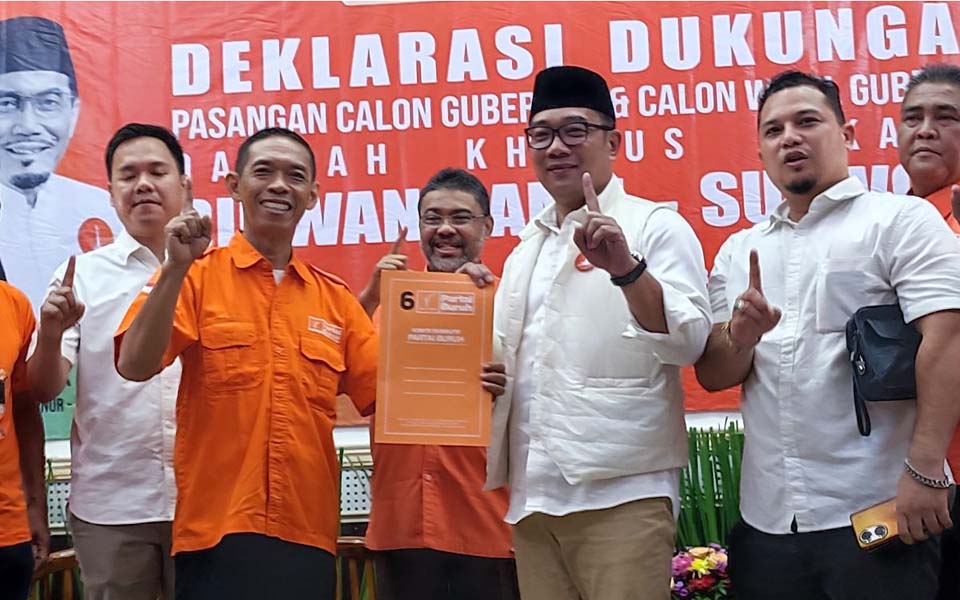Uba/Ant, Jakarta – Muhammadiyah, Indonesia’s second largest Islamic mass organisations, is moving to establish a new political party. Not because of discontent with the National Mandate Party (PAN) – but the longing and enthusiasm of the new generation of Muhammadiyah members to have their own party. They have even declared that they will soon launch the Muhammadiyah Mandate Association (PAM) which will later become the embryo for a new political party.
The chairperson of Muhammadiyah’s youth leadership board, Abdul Mu’ti, says that at a meeting of the Team of 12 at the Muhammadiyah offices on the night of Monday December 20 it declared its agreement to form PAM. “The declaration will be launched on January 10, 2005. At the moment the management of the organisation is still being thought through. We even have the initial capital funds, that is as much as 1 million rupiah”, he said in Jakarta yesterday.
Mu’ti explained that the desire by Muhammadiyah’s younger generation to form a new party is serious. “Support has already come in from various parts of the country. So to move towards its finalisation is only a matter of time”, he said. In order to transform PAM into a party explained Mu’ti, there must first be at least three basic preconditions. Firstly, it must be based on the results of in-depth research which indicates that Muhammadiyah members will support PAM. Secondly, completing the establishment of PAM’s management boards at the provincial and regency levels. Thirdly, there must be a public declaration that PAM is going to change from an association into a political party.
“If it goes on to become a political party, PAM will still have a relationship with Muhammadiyah. So it will be different from PKB [the National Awakening Party] for example which doesn’t have a relationship with the executive board of [the mass Islamic organisation] Nahdlatul Ulama. For PAM the nature of this relationship will be one of coordination”, said Mu’ti.
Touching on the question of the Team of 12, Mu’ti said that it is not true to define it as an initiative by just a few members. The term the Team of 12 he said, was adopted from the spirit enshrined in the year of Muhammadiyah’s establishment, that is in 1912. The key members of PAM are made up of Muhammadiyah’s autonomous leadership organisations such as himself, Mujaddid Rais (general chairperson of IRM), Fitri Gayo (Nasyiatul Aisysiyah leadership board), Pramono (Study Center for Religion and Cultural Affairs), Bachtiar Effendy (chairperson of the Muhammadiyah Philosophy Institute), Muslim Abdurrahman (chairperson of Muhammadiyah’s Worker, Farmer and Fisherpeoples’ Institute), Rizal Sukma (secretary of Muhammadiyah’s foreign affairs bureau), Jeffrie Geovani (Maarif Center director) and Sudar Siandes (Muhammadiyah leadership board executive member).
Mu’ti denied that the establishment of PAM was grounded in disappointment by Muhammadiyah’s youth cadre because have not been accommodated by PAN. The association he said, was establish with the aim of further broadening and optimising Muhammadiyah’s missionary work. “On the question of its principles, PAM’s principles are progressive Islam. Meaning Islam which offers comprehensive concepts as well as building a movement which has a real basis and is revolutionary in helping those social groups who are week and oppressed”.
Commenting on the establishment of PAM, the deputy-general secretary of PAN, Hakam Naja, said that as a dynamic it is commonplace. “Experience has already shown that establishing a party requires extraordinary sacrifices. So our appeal [to Muhammadiyah] is that it is better if the potential they already have is channeled towards an existing party. Remember that establishing a party is easy. But in order to participate in elections or even to pass the threshold that is something which is extremely difficult”, said Naja.
Political observer Novel Ali is also appealing to the Muhammadiyah youth not to force through the establishment of a new political party and link it with organisations which are already active in the areas of missionary work, social issues and education. “It is extremely risky for Muhammadiyah if it becomes involved in the world of practical politics. I am very concerned that Muhammadiyah’s principal mission will instead become biased during the Muhammadiyah congress in Malang in June 2005 to the point where it accommodates the desires of these Muhammadiyah youths”, said the School of Social and Political Science lecturer from the Semarang’s University of Diponegoro.
The best choice for Muhammadiyah said Ali, is to allow its members to join another political party, not accommodate those members who have an interest in practical politics within a new political party. According to Ali, in terms of its constituency the size of Muhammadiyah membership is actually not very large. “Even when [PAN chairperson] Amien Rais became a presidential candidate [he was] only supported by around 15 million voters and PAN only half of this again. This is despite the fact that the majority of its voters are Muhammadiyah members”, he said.
[Translated by James Balowski.]















